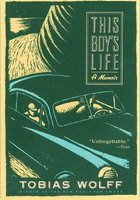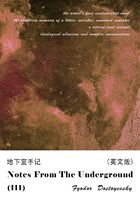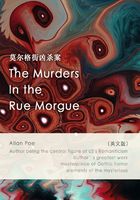A bigger future is essential for lifetime growth. The past is useful because it is rich with experiences that are worth thinking about in new ways-and all these valuable experiences can become raw material for creating an even bigger future. Approach your past with this attitude, and you will have an insatiable desire for even better, more enjoyable experiences. Use your past to continually create a bigger future, and you will separate yourself from situations, relationships, and activities that can trap you there.
Your future is your property. Because, by definition, it hasn't happened yet, it exists only in your mind. This means that you can choose to make it whatever you want. The act of making your future bigger than your past is the very act of growth itself: the bigger future is the vision, and growth is what makes it real. A bigger future is your own vision of what you would like to be true at some point down the road (whether it's a week or 25 years from now) that is in your estimation bigger, better, more satisfying, or more enjoyable than what's true now. It can include anything you want to see that somehow improves your present reality: greater learning, contribution, opportunities, capabilities, understanding, confidence, quality of life, compassion, or connectedness. The list goes on and on, limited only by what you can imagine. Some people's bigger futures are mostly about themselves, while others' encompass contributions to many other people and things.
Believing in a Bigger Future
Creating a future that is bigger than your past is essentially an act of imagination. However, you have to be willing to let your imagination go there. For many reasons, people often don't. Instead they imagine life either staying the same or progressing in a predictable fashion based on what others in their family or community have done. Some even wish that life would go back to the way it was at some golden point in their past, which we know is not possible in today's rapidly changing world. Either way, their history ends up dictating their vision of the future.
In order to make your future bigger than your past, you first have to want and believe that it's possible to have a bigger future, no matter what stage you're at in life or what your circumstances are. Often, this belief alone is enough to keep you growing. And often it takes a great deal of courage.
The Courage to Think Big
Take the case of Hilda, Catherine's mother. Hilda grew up in a very poor family, the third youngest of eight children. In fact, her family was so poor that her parents couldn't afford to support their children while they finished school once they reached legal working age. All of Hilda's older brothers and sisters had quit school at 16 and taken whatever jobs they could get to help earn their keep. In the 1950s, the prospects of a decent future for a girl of 16 without a high school diploma, especially coming out of such poverty, were grim. However, Hilda was a good student and, fortunately, quite headstrong. She had a burning passion to become a teacher, but of course to do this she would have to complete her education, a lofty goal considering her circumstances. So Hilda made a brave decision: she decided to leave home and go it on her own, supported by scholarships that some encouraging teachers helped her to find. At 16, her belief in herself and her bigger future was strong enough that she left her family home forever and went to live at the YWCA. She finished high school and then university, became a teacher, and taught for more than 30 years.
The world is full of stories of people who, like Hilda, grew up without a lot of resources or encouragement but nonetheless believed that a bigger future was possible. We may wonder why some people seem to rise above crushing circumstances or very modest beginnings while others get swallowed up by them. If we look closely, the answer almost always lies in how people use their past.
Every past is rich with raw material. Joe Polish is a successful and high-spirited entrepreneur who keeps reaching bigger goals in his businesses and helping more and more people along the way. Considered a brilliant marketer and interviewer by many, Joe brings an ease and sense of fun to interviewing giants of the marketing and entrepreneurial worlds for his Genius Network? series and various podcasts, and he consistently attracts top entrepreneurs to every coaching group and event he runs. He has a unique talent at connecting with people and getting them to open up by catching them off guard with his zany sense of humor and very real, down-to-earth presence.
What a lot of people might not realize about Joe (though he makes no secret of it) is that the turning point that led to this life of contribution and entrepreneurial success came decades ago, when he suddenly realized in one particularly crazy moment that if he didn't get out of his current circumstances, he would die. At a critical moment in his life, he chose a bigger future, even though at that point it just meant survival. Struggling with addiction, the product of a troubled youth, he left a house of other addicts to go live with his father in another city, where he began to turn his life around. Years of dealing with pain from the death of his mother when he was four years old, bullying, sexual molestation, and moving from place to place left him withdrawn, lonely and struggling to fit in as a teenager, until he discovered escape through drugs and increasingly rebellious and out-of-control behavior.
Yet even while he was doing drugs, he was also reading a lot of psychology books. He had a fascination with understanding why people behaved the way they did. Like many kids trying to protect themselves from unpredictable, threatening people and painful circumstances, he was becoming incredibly empathetic. He was also learning that he was not wired to do harm to people. What he really wanted was to help them. He just didn't know how yet. At a young age, he'd already had a lot of intense experience-a lot of past which, with much effort, would become the foundation for a unique and ultimately very rewarding future.
After moving into a trailer with his father, Joe got a sales job and found he was really good at it. A friend soon encouraged him to try the carpet cleaning business. He started reading books on marketing, which he describes as "just applied psychology," and kept deepening his understanding of human behavior. Within six months he was able to take his sales from $2,100 a month to $12,300 a month. Soon he began teaching other carpet cleaners the marketing techniques he was honing, and his career as a marketer and consultant began to take off.
One day, he ended up joining a high-profile group with a lot of famous people and saw that some of the world's leaders-billionaires, Academy Award winners, famous athletes and politicians-were very broken. He realized that though the world admired these people, in truth, they were painfully lonely, not unlike the broken people he had encountered in his past. The same was true of many top entrepreneurs: "A lot of entrepreneurs are workaholics. 'Workaholism' is the respectable addiction."
Joe's life path has given him insight into and perspective on this pain that very few people get to see. His own painful past and being witness to the pain of others became the raw material for a desire to connect people and opportunities that he's funneled into all his business endeavors. His current bigger future involves several new projects that draw on his unique combination of hard-earned skills, resources, insights, relationships, and compassion to help entrepreneurs and addicts to improve their lives and reduce suffering. Hope, which he was blessed with from childhood, helped him to always see a bigger future even amidst all the craziness and to take action to move first towards surviving, then learning, and then growing his capabilities along with his positive influence and impact on others.
Small Steps Keep You Growing
So we've seen how people can choose a bigger future when they're young and dramatically alter the trajectory of their lives. But what if you're older or in poor health, and you have many great memories and experiences behind you but perhaps only a few years left? How do you make your future bigger than your past in that case? Even if you suspect that only months, weeks, or even days remain after a fully lived life, you can still make your future bigger than your past. Growing can be as simple as making an effort to learn something that increases your perspective on the world or using the time you have left to make a new kind of contribution.
In the last years of his life, Antonio Pijuan was a spry 98-year-old Spaniard, living outside Toronto, who still had strong opinions and an appreciation of pretty women. Earlier in his life he was a farmer in Catalonia, and he experienced the Spanish Civil War and two world wars firsthand. Antonio remained intensely curious about the world despite having lived through almost a century of history. Because he was no longer as agile as he used to be, television had become his window on much of what was new and interesting. After seeing a feature on the Bata Shoe Museum in Toronto, he asked his granddaughter, Lisa, to take him there. He couldn't believe that there could be so many shoes in one building! At the end of the day, he said to her in Spanish, "Thank you. I learned so much today."
This is an example of how a bigger future doesn't have to be grand or flashy. It doesn't have to involve great leaps forward. Most growth happens as a result of many small steps. The key is to keep taking them.
Making the Most of the Future You've Got
Sometimes people's futures get cut short by events beyond their control. But a bigger future is not about how much time you have left; it's about what you do with that time. Here's where we pick up the story of Hilda again.
Hilda truly loved teaching and learning. Both were intrinsic to who she was. She knew she was making a contribution to her students' lives, and their success and appreciation were her greatest rewards. It often seemed that she learned as much from them as they did from her. Once, after going missing in a hill tribe village on a trek in Thailand, she was located sitting outside a hut surrounded by all the local children. They were teaching her words in the Lahu language, and she was teaching them words in English. Bursts of laughter had given them away.
At 59, Hilda was diagnosed with a rare, untreatable form of cancer. By the time the tumor was found, she had only a few months to live. Within moments of receiving this news, she made a decision to turn her remaining time into the most significant learning and teaching contribution of her life. She resolved to handle her situation with all the grace she could muster and to give others an example of how to deal with dying in a dignified, conscious, and thoughtful way. Her first student was a young doctor who had jumped the gun and told her the night before her official diagnosis that she didn't have cancer. Gently but clearly, she explained to him how his misinformation had affected her, and her family and friends. It was a lesson he would surely not forget.
She went on to inspire many people over the following months with her attitude and courage. Dying is a difficult subject to educate people about because most of us don't want to face it. Somehow, she managed to balance hope with pragmatism-not giving up, not being in denial, but realistically and calmly talking about the future and what might happen.
When Hilda died five months later, the funeral home had to open an additional wing to accommodate all the unexpected visitors. More than 300 people went to pay their respects and celebrate what her life had meant to them. As bravely as Hilda had lived, starting with her big decision to leave home at 16, she died even more courageously. She had been determined to squeeze every opportunity for growth out of her last few months, even though in many ways her physical quality of life had been severely diminished by the disease. No matter what your circumstances, you can always make your future bigger than your past. Use what you've learned and done as a foundation for something bigger-bigger questions, bigger contributions, bigger achievements, bigger learning. The next nine laws will deepen your understanding of how to do this. Allow what you know to point you toward the vastness of what you have yet to discover. All of these things will keep you growing to the very last days of your life.
Where Do I Start?
Ask yourself a future-focused question. If you're wondering how to think about what your bigger future might look like, try starting with a question. Here's one we like: If we were sitting here three years from today, looking back on today, what would have to have happened in that time for you to feel happy with your progress? In The Strategic Coach Program?, we call this The R-Factor Question, where R stands for relationship. In this case, it's helping you to establish your relationship with your own bigger future.
Set goals. Creating goals for yourself automatically takes you out of the past and creates a bigger future. If you're having trouble coming up with meaningful goals, a good way to start is to write down five or ten of your accomplishments from the past year and then think about what would represent a further achievement in each area. If building on what you've accomplished recently doesn't excite you, think about what you love to do most that gives you energy (go back as far as you have to, to remember) and ask yourself, "How can I do more of that?"
Take a long view. In Strategic Coach, we like to work with 25-year time frames when thinking about really big goals. Creating your future is, after all, a mental exercise, so you can make the time frame anything you like. We like 25 years because it offers you the freedom to imagine really big change. Committing to do something really big over 25 years doesn't seem as daunting because of the time you have to get it done, and also committing to do something for 25 years makes you really think about what you're committing to. If you had 25 years to develop a new capability or build something extraordinary, what would it be? What would you do now to get started?
Do something with Laws Two to Ten. Law One is the definition of growth itself. You can think of it as the master law with all the other laws falling underneath it, helping you make your future bigger than your past in more specific ways. If you're having trouble with the big picture, keep reading and look for something in the subsequent laws that resonates better with you. If you've already read through the whole book, the exercise at the end will help you find a law that you'd like to focus on.
Another trick is to look back at the table of contents where you'll see all the laws. You'll notice a formula in how they're written. All the words that fall under the word "future" are things that you can focus on to keep you growing. All the words at the ends of the laws (just before the period) are potential growth traps. For instance, focusing on future, learning, contribution, performance, gratitude, and the other words in the middle of the laws will help you make your future bigger than your past. Focusing on the past, experience, rewards, applause, success, and the other words at the ends of the laws can trap you. When you look at the laws this way after you've read the book and understand them, it often happens that a word jumps out immediately that you know you want to focus on more, or that is at the root of the feeling you have of being stuck or frustrated. Read the full definition of that law again (handily on the page number listed right there), and you'll likely get some ideas about what to do.















